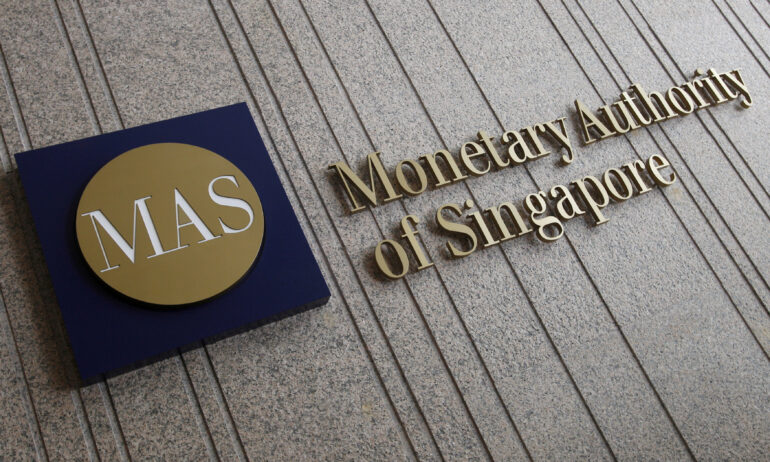- The Monetary Authority of Singapore has published a whitepaper in collaboration with other central banks and financial institutions.
- The central bank proposed standards for the use of digital money, including Central Bank Digital Currencies (CBDC).
- The MAS tapped the International Monetary Fund as well as Amazon and DBS for its proposal.
The Monetary Authority of Singapore (MAS) has released a white paper in collaboration with the International Monetary Fund (IMF), the central banks of Italy and South Korea, as well as multiple industry giants. The Singaporean Central Bank proposed a common protocol for specifying conditions for the use of digital money, including central bank digital currencies (CBDC), tokenized bank deposits, and stablecoins on a distributed ledger.
MAS Taps Amazon and DBS To Collaborate on CBDC & Stablecoin Rules
According to a press release from the Monetary Authority of Singapore, the whitepaper was supported by the release of software prototypes that demonstrate the concept of Purpose Bound Money (PBM). PBM enables senders to specify conditions, such as validity period and types of shops when making transfers in CBDCs and stablecoins. The MAS was assisted by Banca d’Italia, Bank of Korea as well as fintech and financial institutions.
“This collaboration among industry players and policymakers has helped achieve important advances in settlement efficiency, merchant acquisition, and user experience with the use of digital money. More importantly, it has enhanced the prospects for digital money becoming a key component of the future financial and payments landscape.”
Sopnendu Mohanty, Chief FinTech Officer, Monetary Authority of Singapore
The central banks tapped industry leaders, including Amazon, Grab, and Fazz for a use case involving escrow arrangements for online retail payments. This would allow payment to be released to the merchant only when the customer receives the items purchased, thus providing greater assurance to both parties.
Meanwhile, DBS, NETS, and UOB will help with trials, including PBM-based cashback and other incentives to improve consumer experiences while reducing frictions faced by merchants, such as manual reconciliation of sales proceeds and time needed to onboard new sales campaigns.

